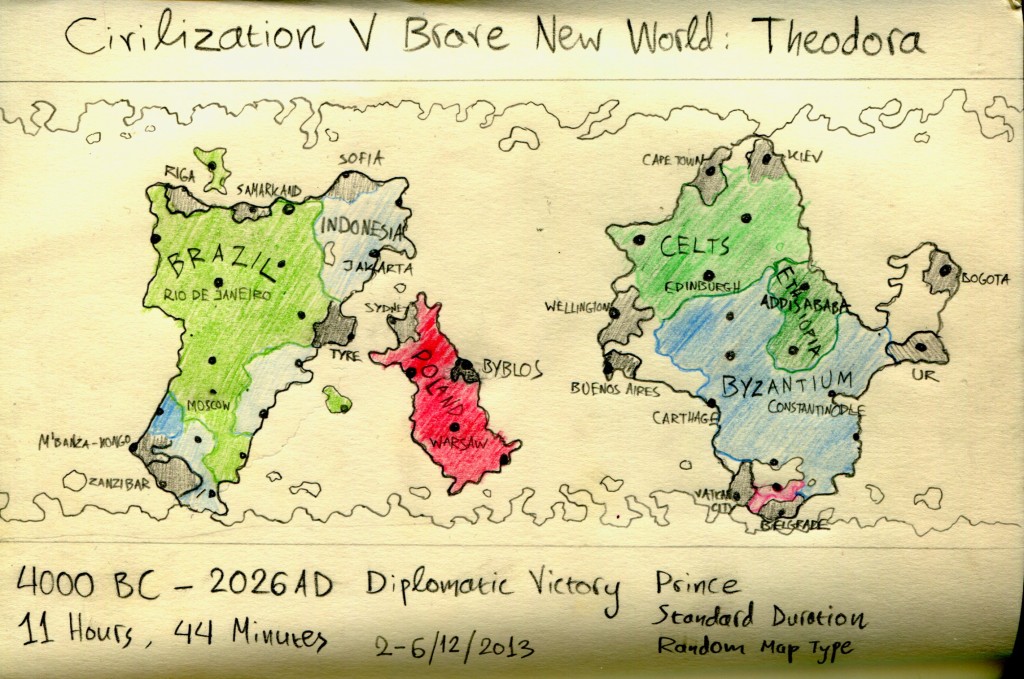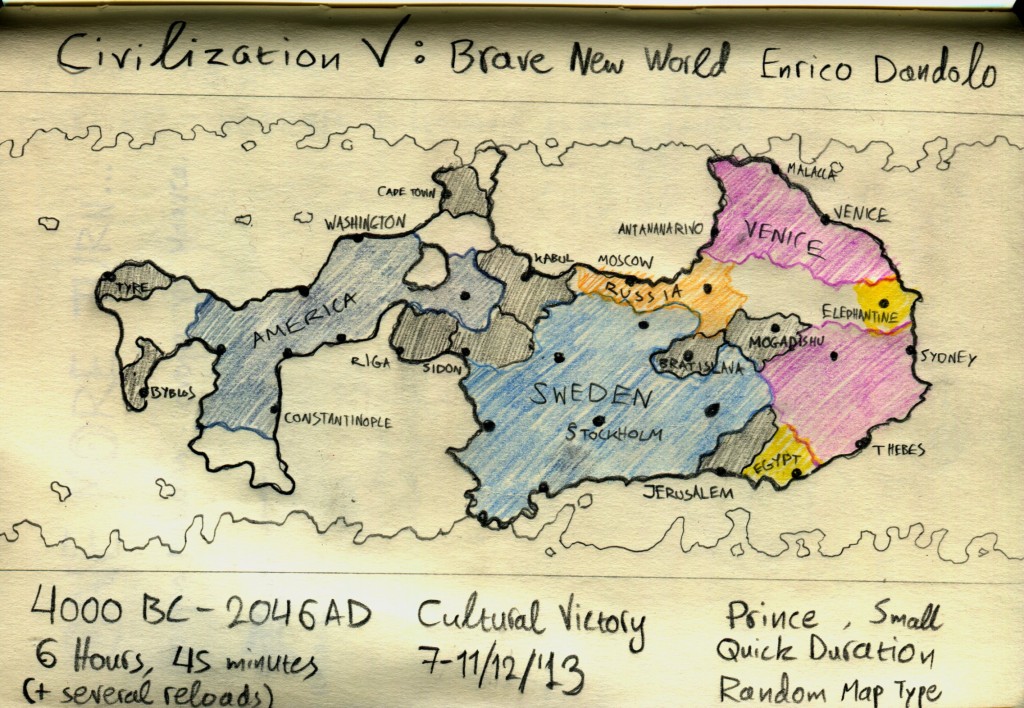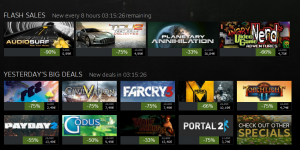
1984 : Ο μεγάλος αδελφός by George Orwell
My rating: 5 of 5 stars
Under the spreading chestnut tree
I sold you and you sold me
There lie they, and here lie we
Under the spreading chestnut tree
I always loved how, in the book, pop prolefeed songs are manufactured by computers; no human creativity is needed. I involuntarily recall this tidbit whenever I listen to the newest radio hit these days.
I originally read Nineteen Eighty-Four (the original title, though understandably usually shortened to 1984) in Greek a few years back. 10 days or so ago I felt a need to return to it in English and did so in audio book format, read by Simon Prebble.
They say that Brave New World describes our world much better than 1984 does, that the blissful ignorance is much more prominent in our society than 1984’s “boot stamping the human face”. I’ve always held at heart that our own dystopia in the making is the neat blend of the two: the blissfully ignorant sex, drugs and genetically determined human strata, go hand in hand with a government that is in love with power and has merely chosen this more subdued but no less effective way to prolong its ever-lasting dominion.
In this world, wars never end; the enemy is unbeatable and ever-present. Bombs go off randomly every now and again just to allow your mind to come in terms with this fact. Telescreens follow the population everywhere. Nowadays people even take little telescreens with them and have feelings of withdrawal if they are ever separated from them. Those who control the present control the past, and those who do so, do it very, very well. So well, in fact, that public opinion can be swayed one way or another in a matter of weeks or even days — so little do people actually remember, so easily do they forget. Relativism is used as the end-all be-all argument to support that might is right following sickening twists of logic: that there is no nature “out there”, thus truth is dictated by the government and the government only. A similar argument hides behind the saying “who wants to ban fascist groups is against freedom of speech and a fascist themselves!” The encouragement of doublethink, of which the above is but an example, ultimately has people holding two contradicting beliefs at the same time: “I’m not a racist, but everybody knows that our race is more advanced” or “war is peace, freedom is slavery, ignorance is strength”. In a similar vain, the government body that is responsible for hitting people and quenching peaceful protests is named “Ministry of Citizen Protection” and the one which makes sure that everyone starves is called “Ministry of Development”, releasing false figures to mask the facts and manipulate the masses. They are allowed to do so; there are no real laws, since the judiciary body is also controlled by the government. What about the proles where the hope for revolution lies? They’re either too busy surviving to actually think for themselves or they’re blindly consuming the “prolefeed” the party is providing them with, including of course their own propaganda.
…oh, sorry about that. I got carried away there and started describing our own living, breathing 2012.
This is definitely one of the masterpieces of the 20th century and is one of absolute favourites. It stands as a beaming symbol of the totalitarian societies of the past and of political oppression, violence, propaganda, hunger for power etc. Orwell’s vision was so ironically vivid, realistic and reverberated with so many that his name has even come through this book to stand for a whole arrangement of things that smack of real-world totalitarianism. Even if he did write it for a different world than what exists more than half a century later, it’s evident that when it comes to human societies, old loves die hard; whether it is totalitarian socialism/communism or hardcore neo-liberal capitalism, it makes little difference. The essence, displays Orwell masterfully, remains the same. Reading 1984, especially for a second time, I got the same feeling Winston, the protagonist, gets from reading a certain book in the book itself: that he had always known about these things and that he was grateful that he had found someone who could articulate them for him.
Parts of 1984 are extreme, I’ll admit. Part Three is a punch in the gut every time. I just wanted to lie in a fetal position in the corner of my room after first reading it. It is that hopeless, that horrible. I can’t believe that states like Oceania et al. could be set up and maintain themselves on force, pain and hatred alone; call it conscience, call it a belief that people are basically good, I just can’t see such a place existing. It’s too evil to exist! That said, I can’t think of a way that such a regime, if already having been set up properly, could fall, either. Not to mention that in many ways, our own world and reality is full of unnecessary evil. Who’s to say if it’s within the bounds of possibility for the next logical step in this progression of evil and imbalance to be taken?
This nightmarish inevitability hidden within, the terror of the idea that if someone really wanted to create IngSoc and Oceania, they could, is what plays with my mind and I believe with every reader’s mind. We might, like Winston, think that such a world is just a work of dystopian fantasy; if we look around us carefully, we just might realise that the absoluteness of the pain, the torture and the future being described as “a boot stamping on a human face forever” might not be such absurd ideas after all.
The owner of the boot is creating his shoelaces made of hatred and fear as we speak. What if we could create our own artificial shortage of shoelaces?
View all my reviews
 In Other Worlds: SF and the Human Imagination by Margaret Atwood
In Other Worlds: SF and the Human Imagination by Margaret Atwood




